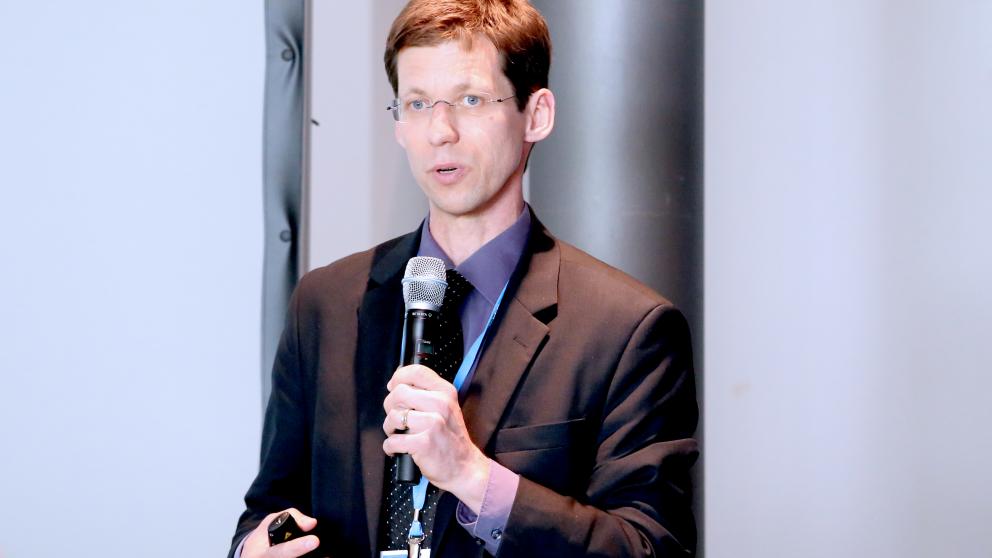Less Soot for a Better Climate: IASS Presents Policy Recommendations at UN Climate Negotiations
23.05.2017

Reducing emissions of black carbon can reap rewards for both air quality and climate protection. Thanks to this dual role, black carbon (also known as soot) has been the subject of increasing attention: How can policymakers and researchers reduce emissions effectively? On 15 May, IASS Scientific Director Mark Lawrence delivered a brief presentation on this subject in Bonn at the preparatory meeting for the United Nations’ Climate Conference.
The climate scientist presented the latest research on black carbon and its impacts on health, the climate, and development. According to the Intergovernmental Panel on Climate Change (IPCC), black carbon is among the leading climate forcing agents after carbon dioxide. Mark Lawrence stressed that “there is no chance for us to stay below 2 degrees Celsius warming without reducing both carbon dioxide and the SLCPs” (short-lived climate-forcing pollutants).
Lawrence also presented a new IASS Policy Brief, prepared by the IASS in cooperation with Environmental Action Germany (DUH), which provides extensive background information on black carbon as well as policy recommendations for the next steps in efforts to reduce emission levels. “Black carbon is not just a problem in developing countries; in Europe it also contributes to premature deaths and climate warming. In the European context, addressing the transport and residential heating sectors will be key to reducing our BC emissions and the associated negative impacts on health and climate”, explains Kathleen Mar, a co-author of the new policy brief and co-organiser of the side event in Bonn.
Further information:
- IASS Policy Brief “Black Carbon in Europe – Targeting an Air Pollutant and Climate Forcer” by Erika von Schneidemesser (IASS), Kathleen A. Mar (IASS) and Dorothee Saar (Environmental Action Germany – DUH)
- IASS Dossier “Air Pollution and Climate Change”